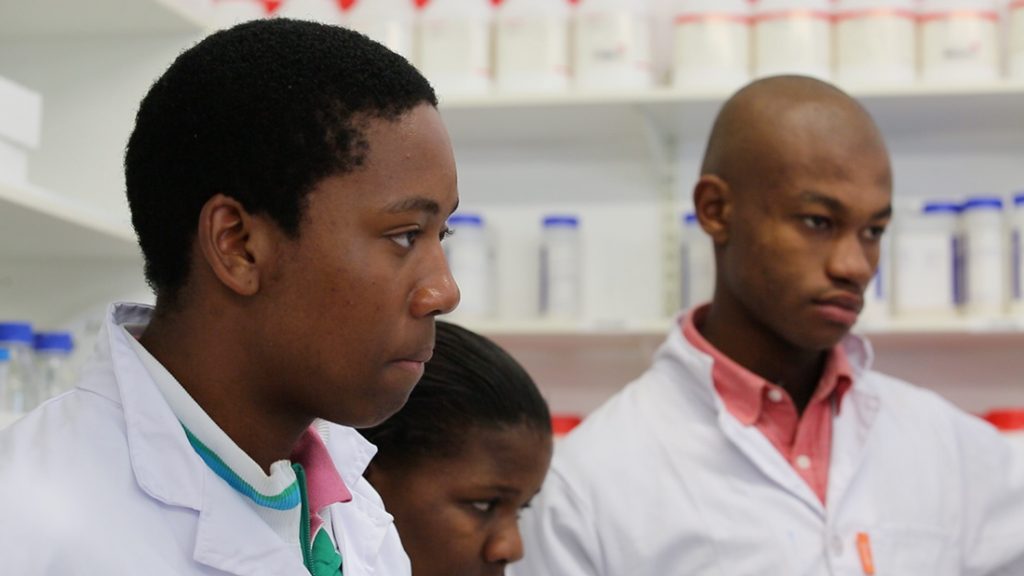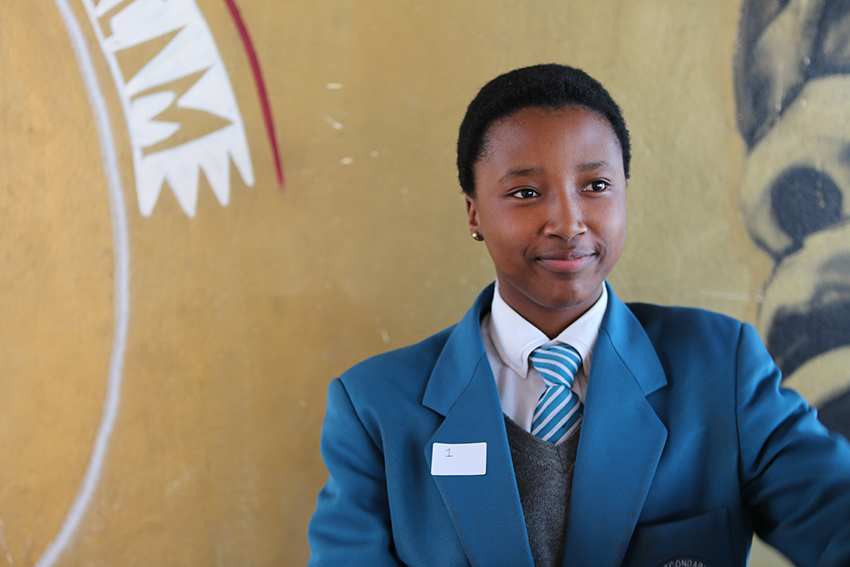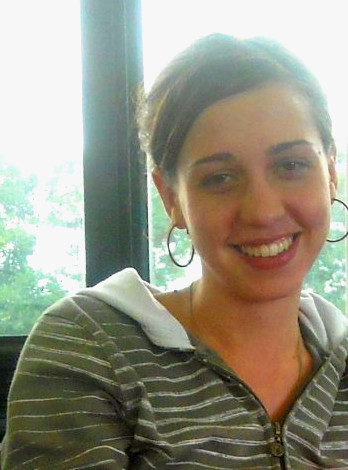EH!WOZA: Leaving the Lab and Addressing TB Stigmas and Taboos
Anastasia Koch, a molecular biology PhD student in South Africa talks about engaging the community with biomedical research.

Image credit: EH!WOZA 2013
As a molecular biology – molecular mycobacteriology to be precise – PhD student, I never thought I’d be involved in the production of documentaries & online media resources. In the past few months, I’ve uncharacteristically found myself critiquing aesthetics in film and design owing to an involvement in a unique collaboration between biomedical scientists, artists, and a community not-for-profit organisation.
Let me begin with some background. I work in the Centre of Excellence for Biomedical TB Research (CBTBR) of the Institute of Infectious Disease and Molecular Medicine at the University of Cape Town. My PhD research is focused on understanding the molecular determinants (and associated physiological implications) of drug resistance in Mycobacterium tuberculosis, the bacterium which causes tuberculosis (TB).
TB is the leading cause of death in South Africa (largely owing to the fact that around 65% of TB occurs in HIV-infected individuals). In 2009, 31 000 cases of TB were reported in Cape Town, a city with a population of only 3 million. The number of TB cases reported in our city is double that reported in 2009 in the entire United States, with a population of 300 million. Unfortunately, TB affects vulnerable and underprivileged communities the most.
My PhD is predominantly lab-based – PCRs, cloning, allelic exchange and Southern blots. Despite my focus on Mycobacterium tuberculosis, I rarely interact with individuals suffering from TB or the communities in which the disease is endemic. I have always felt the need to add this aspect to my work given the direction of my studies as a scientist.
During a social conversation with two artists (who happen to work in design and film), an idea developed to produce a resource that could decrease stigmas around TB. A colleague put us in touch with Ikamva Youth, an NGO whose core mandate is to empower the youth through education. Ikamva is based in Khayelitsha, a township approximately 30km outside Cape Town. Informal housing, overcrowding, poverty and high rates of HIV all contribute to extremely high rates of TB in the community (1 in 100 people get TB every year).
We decided to present workshops to learners from Ikamva on the biology of TB and, based on this experience, we planned to create an educational infographic to address the effects the disease could have on the human body. The other aspect we wanted to explore was to make a documentary based on the learners’ attitudes towards TB. And so the collaboration that is EH!WOZA was born.
I don’t think any of us thought we’d get funding to do this… but luckily my supervisors think public engagement is fundamentally important, and funded the project.
It was very successful both in engaging learners and in producing high quality media products which are now freely available online. I was especially impressed by the level of responses we received from the learners aged 17 and under. When asked prior to the health workshop what they thought caused TB, many answered “smokin”g or “dust.” These misconceptions have the potential to lead to behaviour that may actually increase the risk of getting TB – such as a reluctance to open windows even in poorly ventilated areas.

Image credit: EH!WOZA 2013
Asked for his opinion on the matter, Dr. Digby Warner, Senior Research Officer with the CBTBR (and my PhD supervisor) stated that: “Science can be very useful in specific environments to clarify some misconceptions which might… cause a lot more harm than good.”
In filmed interviews after the workshop, almost all of the attendees knew that the disease was caused by a bacterium called Mycobacterium tuberculosis. By understanding the science presented during workshops, learners are less impressionable to misconceptions, a finding that became apparent as we observed the certainty with which they eventually dismissed fictitious arguments pertaining to the spread and causes of TB. They also had a positive outlook on an otherwise worrisome situation. Many spoke of instances where they supported friends or classmates through the disease. Simultaneously, they were open about their relatives ignoring TB symptoms and disregarding medication. They also shared experiences where these relatives passed away, often needlessly.
Positive feedback from the initial engagement led to a successful application for a Wellcome Trust International Engagement Award to extend our project. During the pilot project, we realised that the best vehicle to disseminate information to the youth is the youth group itself. As such, we will continue engaging learners from Ikamva Youth and their role in the project will be extended.
Through the Wellcome-funded project, we are giving a group of Ikamva learners a series of high-level scientific workshops that are designed to describe relevant TB biomedical research (rather than traditional health information). From this, they will start understanding the principles of TB – infection, transmission and control. Thereafter, they will be given professional advice and filming equipment to interview members within their respective communities, independently investigating issues they feel might contribute to the misconceptions surrounding TB. Under the guidance from artists, they will then develop short documentaries and an online campaign to disseminate information from the scientific workshops.
In its most basic form, our new project aims to decrease current taboos and stigmas surrounding TB. We hope that access to accurate and contemporary scientific information will help significantly in achieving this, as it did with the pilot project. Moreover, by interacting with the learners, we aim to generate a sense of self-empowerment and hope that this will have a “ripple” effect as they go out and influence, educate, or play a role in their community.
From my perspective as a young South African scientist, interaction with the learners living in highly affected communities and practicing South African artists has influenced my own research in an appreciable manner. While challenging, the act of translating the vast biology of TB into concepts accessible to the youth has been hugely beneficial to my understanding of what the key TB issues are. Moreover, the conceptual approach taken by artists has added a depth to my scientific thinking. A year ago, none of this would have occurred to me, but today I can’t imagine a career in science without this form of engagement.
 Anastasia Koch is a PhD student studying the physiology of the causative agent of TB, Mycobacterium tuberculosis. She has a keen interest in public engagement and finding ways to better communicate biomedical research to communities where diseases have the biggest impact. She has no conflict on interests to declare. She acknowledges the help of Herman de Klerk, Olivia Carulei and Digby Warner in writing this piece.
Anastasia Koch is a PhD student studying the physiology of the causative agent of TB, Mycobacterium tuberculosis. She has a keen interest in public engagement and finding ways to better communicate biomedical research to communities where diseases have the biggest impact. She has no conflict on interests to declare. She acknowledges the help of Herman de Klerk, Olivia Carulei and Digby Warner in writing this piece.
